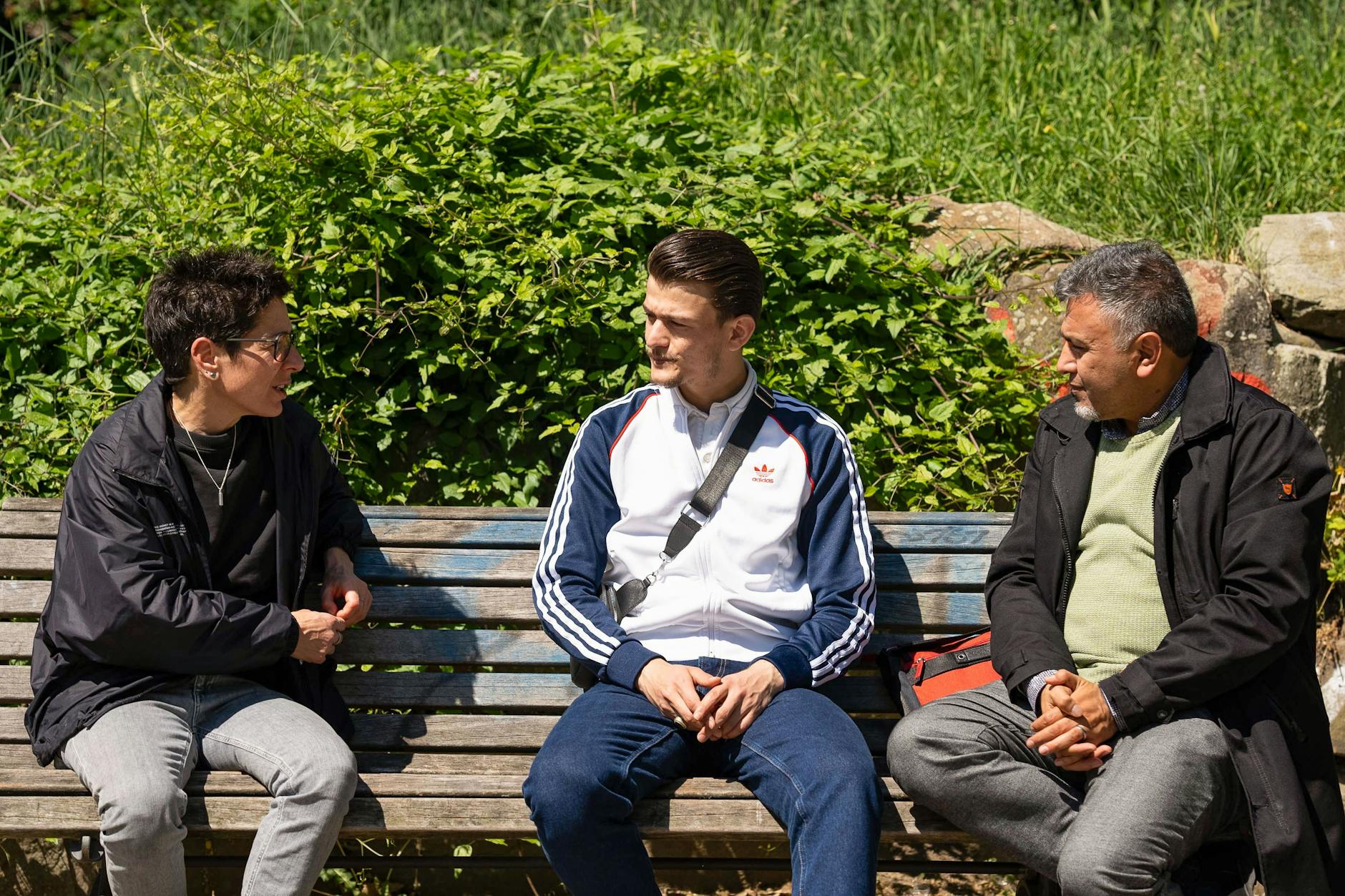Twisted facts: In Dunja Hayali's documentary, Germans are a danger to migrants

An invisible fog hangs over the country. It accompanies women on their way home through dark alleys, hangs over train stations, parks, and doorways. This fog, which symbolizes an undeniable sense of societal anxiety, is both omnipresent and invisible. It is a part of the reality of life for millions of Germans who prefer to take a taxi to the subway. Who take their children to school rather than let them walk alone.
But what if the fog of fear is merely an illusion? What if we're convincing ourselves of something that doesn't exist? And what if we ourselves are the ones we should be afraid of? In the ZDF documentary "Am Puls," presenter Dunja Hayali embarks on a search for answers and admits right at the beginning to feeling "a sense of insecurity." The reason: "The number of attacks on people with a migration background is at a record high."
The problem is not violence, but the sensitivity of the populationA sentence that comes out in the first few minutes of the report entitled “Internal (In)Security” and reveals a problem: Instead of seriously analyzing the fog, Hayali tries to explain it away, to put it into perspective, and to shift the responsibility not onto the fearful people, but especially onto the media.
Journalists, according to her seemingly self-critical insight, are part of the problem. If a perpetrator has a migrant background, the news is covered for days, while with German perpetrators, it's over after a day. A study, according to Hayali, proves this. The fact that police statistics have shown a significant increase in violent crimes, and especially in knife attacks, for years is briefly mentioned, but subsequently justified by a rising number of reports. Be that as it may, there is no structural problem in any case, or at least that is the tenor.
The problem, then, is not violence, but the public's sensitivity and the media's desire for sensationalism. And yet, Hayali and her team interview several passersby, asking if they feel safe at Bremen's train station. The majority say no. Hayali's reaction? True to the procedure in public broadcasting, she has an expert assess the statements. Julia Ebner, author and extremism researcher, confirms that emotions are responsible for the respondents' perceptions.
Ebner's 2023 book "Mass Radicalization: How the Middle Class Falls Victim to Extremists" explores these findings in more depth. However, the conversation with Hayali focuses less on her books and the "risky undercover missions" she describes in anti-vaccine circles, but rather on the real causes. Hayali cites: precarious environments, lack of education, lack of money, trauma, and refugee experiences. The expert nods in agreement.

By now it's clear: the report follows a pattern. Every reference to real problems is immediately relativized, every statistical finding is accompanied by a "but." Yes, knife crime is on the rise, but a connection to migration cannot be scientifically proven. Yes, women feel unsafe at night, but German men at stag parties are just as to blame. Yes, there are Islamist attacks, but the perpetrator in Magdeburg was also an AfD sympathizer. Thus, facts are not explained, but embedded in a reassuring narrative: violence is universal, causes are social, biographical background is irrelevant. Hayali illustrates this supposed irrelevance of origin with a striking juxtaposition: "Knife stabber Ali" versus "Knife stabber Uwe."
Hayali's treatment of the police is particularly disconcerting. In Bremen, she accompanied officers on patrol and expressed surprise at the overwork, lengthy checks, and legal restrictions on the emergency services. "I didn't realize that the police were fighting windmills like this," she commented. That a journalist, of all people, who considers herself "in touch" is apparently only now realizing how overburdened the security forces are seems unrealistic – and says more about the bubble of the narrator than about the situation in the country.
The documentary's bias is also evident in the selection of victims' stories. Instead of giving equal voice to German and foreign victims, it highlights the case of a Syrian man who was stabbed by a German. A little later, a woman who was stabbed in an Islamist-motivated attack in Solingen speaks. Her message is: "Most refugees are peaceful." What goes unmentioned is that statistics show that the majority of criminals are not German citizens.
When Hayali mentions the terrorist attack in Magdeburg in December 2024, she emphasizes that the perpetrator, although from Saudi Arabia, had appeared as an "Islam hater" and was close to the AfD. The report omits the fact that he wrote an eight-page letter in prison justifying the attack and issuing new threats. This deliberately shifts the image: away from the Islamist background and toward the "right-wing threat."
Willingness to use violence out of greed, an inner drive, pure hatred?At the end of the documentary, Dunja Hayali puts the icing on the cake by attending a trauma counseling center for refugees. A psychotherapist explains that a refugee might suddenly become violent during a ticket inspection because they are reminded of torture experiences at that moment. Therapy is therefore necessary to prevent outbreaks of violence. Hayali praises the project and recommends widespread implementation: "This is the best prevention there is." Willingness to commit violence out of greed or outright hatred? There's no mention of this. Those who act violently without a traumatic history become invisible in Hayali's narrative.
Ironically, the ZDF presenter says at the very end, in the last minute of her documentary: "We should all try to stick to the facts and speak plainly, even if it hurts sometimes." Perhaps Dunja Hayali herself has lost her perspective due to the thick layer of fog that covers the country.
Berliner-zeitung


